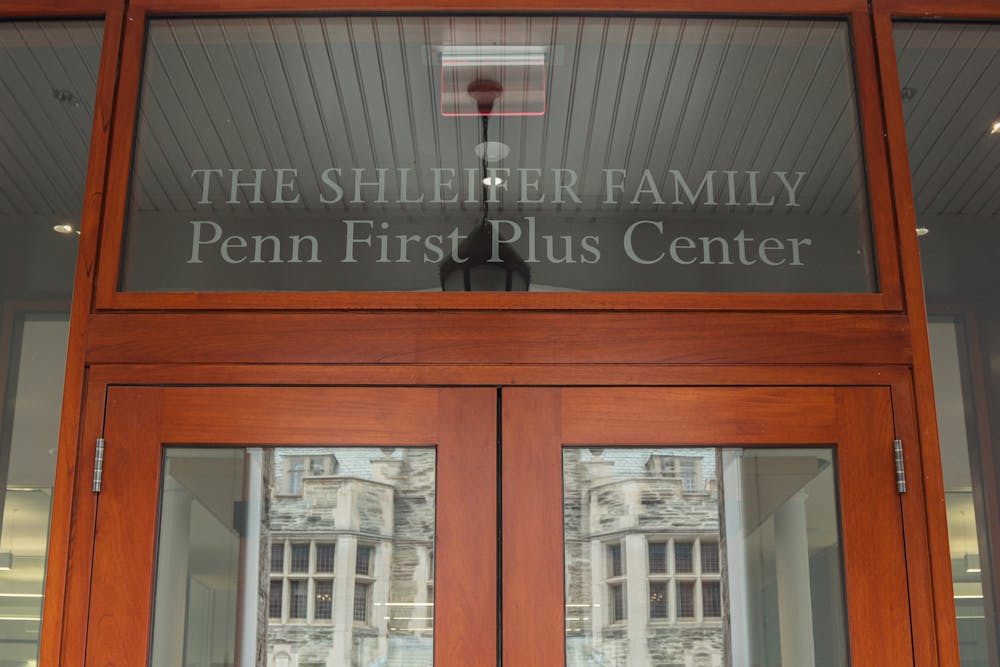Each year, Penn admits a record number of first-generation, low-income students. As a FGLI student, I acknowledge there are many resources on campus such as Penn First Plus and related groups. But when Penn recently suspended a commonly used textbook code initiative with only a couple weeks’ notice, the faults and limitations of our support became clear. The P1P Access Code Program provided textbook codes for some of the most popular classes on campus across various majors, so the decision came as an unpleasant surprise.
The removal of the program, and more pressingly, the lack of notice for students who were counting on it, made me and many other FGLI students feel unsupported. While I understand many of the reasons given for the program's suspension — the main one being that it swayed students towards picking classes that offered codes — the removal is still a step backwards in accessibility.
The short notice felt like a slap in the face, as no new program was proposed. Students were told to rebudget their refunds, which are intended to cover the cost of living.
When living in a major city like Philadelphia — where the cost of living is 5% higher than the national average —every dollar counts. Rebudgeting to include the cost of course materials, which is estimated at $1,358 a year by Penn, means less money for essentials like food and transportation. Much of Penn’s social calendar also centers around spending money, and it can be hard to budget.
The P1P Access Code Program definitely wasn’t perfect. Only 350 students were supported, and not all subjects or classes were covered. Many students who qualified for the program still had to buy textbooks out of pocket.
I was one of these students. Despite my Highly Aided status, I was unable to receive any textbook codes last year because they ran out. I went to the financial aid office and was told to go to P1P. Upon entering P1P, I was sent back to the financial aid office. This game of cat and mouse surrounding financial aid and other funding has become a common experience for me and others.
While the diversity of organizations on campus meant to help FGLI students is important, the variety of programs and resources can make it more confusing and difficult for students to receive the help that they need. In my experience, the financial aid office and P1P were not on the same page as to their availability of resources. As a first-year student new to Penn, I was left to figure out how to obtain my books on my own.
However, just because a system is imperfect, that doesn’t mean dropping the entire program is the solution.
Another reason stated for the end of the program was the consensus that the problem lies with the expensive cost of textbooks. Rather than provide the codes to cover the cost, work should be done to lower these costs on the back end. It's important to note that the struggle of affording expensive class material extends way beyond FGLI students. The solution is to lower textbook costs for everyone, but until that happens, work needs to be done to support the students who need the financial help the most.
On a more positive note, I believe Penn and P1P are making great strides towards providing resources like seminars and, most importantly, space for FGLI students to ask questions and be in community. When navigating college as someone from a disadvantaged background — especially in an Ivy League — the transition can be difficult and the investment in these students is necessary and worthwhile.
For example, Highly Aided first years can receive a free laptop from Penn. Highly Aided students also have an assigned aid counselor, whom they can talk to about financial issues — a resource many qualifying students don’t utilize.
This being said, there must be more transparency from the financial aid office. There have been many times where financial aid counselors give conflicting information to students or fail to discuss extra expenses. Students without health insurance coverage that meets Penn’s requirements must enroll in the Penn Student Insurance Plan. Purchasing this plan is covered by Penn, yet when it comes to co-pays and other fees for things like medication, Highly Aided students must pay out of pocket. This can come as a surprise for many students and present additional financial barriers.
Penn needs to do a better job of creating cohesion between groups like P1P and Student Financial Services, so students can know which organization can best address the individual needs they are inquiring about.
Most pressingly, Penn needs to put its students first — and that means all students regardless of financial status. When making decisions, particularly ending programs vulnerable students have come to rely on, administration must keep in mind the potential repercussions.

MIA VESELY is a College sophomore studying philosophy, politics, and economics from Phoenix, A.Z. Her email is mvesely@sas.upenn.edu.









